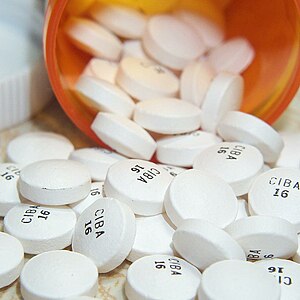 Image via Wikipedia
Image via Wikipedia
You can find two kinds of sinus infection. It might be acute or chronic and among the two, a lot more individuals get afflicted with the chronic sinus infection.
The difference between chronic and acute sinus infection is the fact that this can last for 12 weeks or longer and this can recur once you get much better. An acute sinus infection is gone after a week.
Common causes for chronic sinus infection consist of allergies, airborne fungus, nasal or sinus obstructions, trauma to the face, particular medical conditions and respiratory tract infections.
As a result, some of the symptoms that most individuals feel consist of headaches, congestion, difficulty breathing, reduced sense of smell, ear pain, fatigue, cough, nausea, sore throat and aching within the upper jaw or teeth.
Since you probably tried already to self medicate yourself without any positive results, the doctor is your only hope to make it go away.
After reviewing your medical history, some test will need to be done such as an MRI, CT scan, nasal endoscopy, extracting nasal or sinus cultures and an allergy test.
An MRI or CT scan is similar to an X-ray machine because they can show details of your sinus and nasal area without inserting anything into your body.
If this is needed, the doctor will have to do a nasal endoscopy by putting a thin, flexible tube with fiber optic light up your nose to see what is happening inside.
Not many people like that because it is like putting a similar tube up your anus. If possible, they will give a nasal or sinus sample instead so this can be checked.
If your doctor has not yet determined the exact cause of the chronic sinus infection, you may be referred to another specialist especially if he or she suspects that this is caused by an allergy so they can conduct an allergy test.
Once the results come in, the doctor will probably prescribe some antibiotics until you are free of the symptoms. To deal with the inflammation and swelling in the nasal cavity, you will be prescribed a corticosteroid. If this doesn’t work, then you will probably try antihistamines, decongestants and expectorants.
The doctor may also try moisture or humidification to help flush the nasal cavity and loosen the dried mucus. Should the chronic sinus infection be caused by an allergy, it can be treated with immunotherapy. A method designed to stimulate the antibodies that block the body’s reactions to a specific allergy.
Chronic sinus infection can be prevented and the steps that you take are not that different when you are suffering from an acute sinus infection. You just have got to practice proper hygiene, get flu shots once a year, stay away from people who have colds as it is a contagious illness, limit your drinking, keep yourself hydrated at all times, buy a humidifier and avoid being in polluted areas or around people who smoke.
Should you already have chronic sinus infection, just follow the instructions of the doctor and update him or her on any progress.
Chronic sinus infection is no joke. Just to give you an idea of how serious it is, over 30 to 40 million Americans get it every year. If you don’t want to be another person added to the statistics, do what is needed so you are always healthy.
![Reblog this post [with Zemanta]](http://img.zemanta.com/reblog_e.png?x-id=a947f10e-7c8a-430c-a56e-4fccf3cf7065)

![Reblog this post [with Zemanta]](http://img.zemanta.com/reblog_e.png?x-id=3dae5de9-1fad-43c1-90c3-9657d0c6921e)

![Reblog this post [with Zemanta]](http://img.zemanta.com/reblog_e.png?x-id=c8fcbee4-ff6d-4f59-b90f-48e4bcf1ad70)

![Reblog this post [with Zemanta]](http://img.zemanta.com/reblog_e.png?x-id=94bcc869-1992-4af3-b62c-78c26893b780)